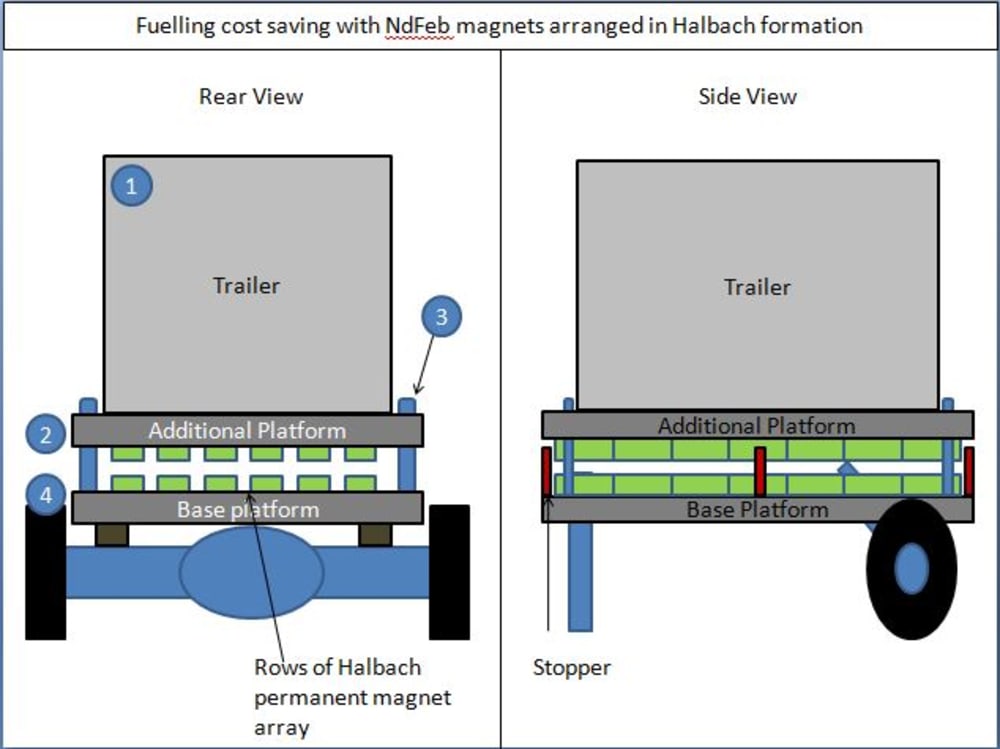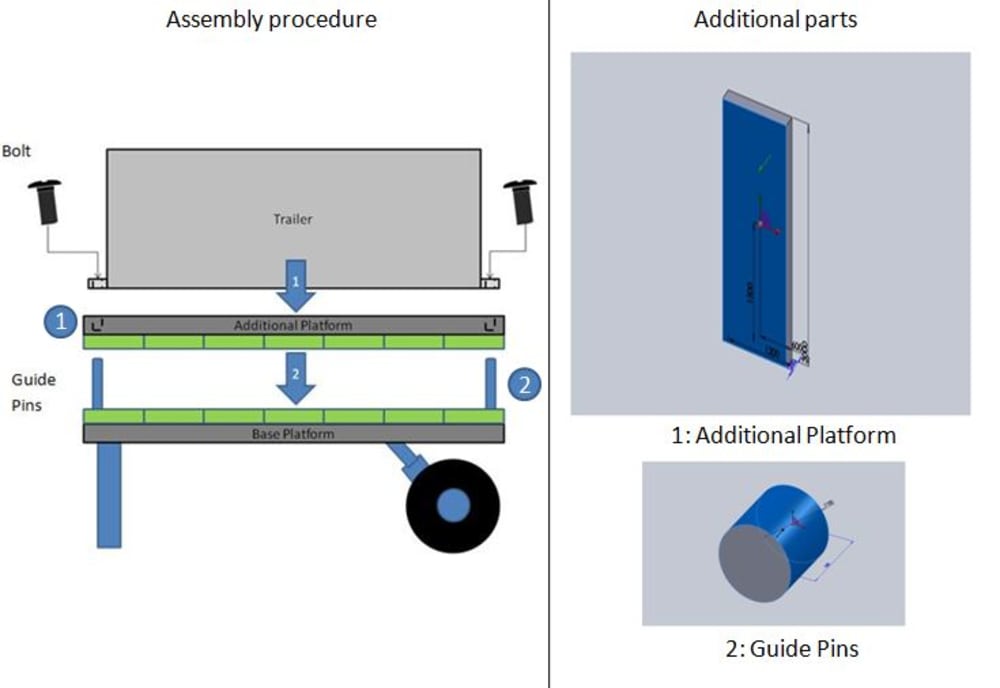Problem: Huge fueling costs of semi trailer trucks due to low fuel mileage.
Proposed solution:
The heavier the vehicle is, the more energy it needs to get moving. Reducing weight is a very effective way to improve a vehicle’s efficiency. As shown in fig 1, currently when a container full of cargo is loaded on a semi trailer, its weight W1 (weight of container) in addition to W2 (weight of semi trailer) acts on its wheels, thereby increasing cumulative load on truck. If we are able to reduce this weight using external system (of lesser weight) we will be able to achieve increase in mileage.
The solution proposes use of NdFeB permanent magnets arranged in Halbach Arrays working on principle of permanent magnetic repulsion, placed below container as shown in fig 2 A Halbach array is the result of a particular orientation scheme for the magnetization direction along the magnetic structure. When employed in a volume (or with individual magnets) the magnetic flux density is canceled on one side of the structure whereas the flux is augmented on the other side.
Design calculations:
Let us consider a semi-trailer with 67 tonne cargo weight and 12m (length) by 3 m(width) trailer attached to truck. (It can be a long combination vehicle)
The volume energy density of 5 cubic cm magnet is 48kJ/m3.
Volume of magnets required= (Semi trailer load× Gap)/(Mass energy density),
= (670000×0.02)/ (48000)
=0.2791 cubic metre
This is the total volume of magnets required on both platforms.
Now let us calculate requirement on each platform,
=0.2791/2= 0.1395 cubic metre
We have volume of individual magnet= 5×10-6 m3
So, number of magnets required= 0.1395/5×10-6 m3
= 27917 magnets.
The area of platform = 1200 (Length) × 300 (Breadth)
=360000 cm square
Area of 1 magnet= 5×1=5 cm square
Maximum no. of magnets that can come on platform
= 360000/5= 72000.
Therefore, linear Halbach array arrangement with 240 magnets (5 cm3) each arranged in 116 equal spaced rows can fulfill the requirement as the provided surface area is greater than maximum capacity.
Assembly of system:
Attach magnets on both platforms using strong adhesives, such that both arrays generate north magnetism.
1) Bolt the container over additional platform.
2) Using crane hoist the platform over trailer guided by guide pins over the base trailer as shown in fig 3
Cost Considerations:
One piece of 5cm × 1cm× 1cm costs = 2 USD
Cost of 27917 magnets= 55,834 USD
Cost of two linear Arrays: 1,11,668 USD.
Cost of pillars and Platform: 7500 USD (Approx)
Total Cost of new system per 67 tonne weight carrying vehicle: 1,18,668 USD.
Return of Investment calculation:
Suppose if 1 truck travels =1,00,000 miles
Mileage: 4.7miles/ gallon.
Fuel cost in America (diesel fuel) = 2.54 USD/ gallon
Cost of fueling per year: 54,042 USD/Truck.
Expected savings after new system: 70% fuel economy up. Fuel economy will become 8 mpg.
Cost saved from fueling: 37,829 USD.
Investment will come back in 3 years. Moreover,trucks with smaller engines can also use this design.
Like this entry?
-
About the Entrant
- Name:Debashish Ghoshal
- Type of entry:individual
- Software used for this entry:Solidworks
- Patent status:pending








